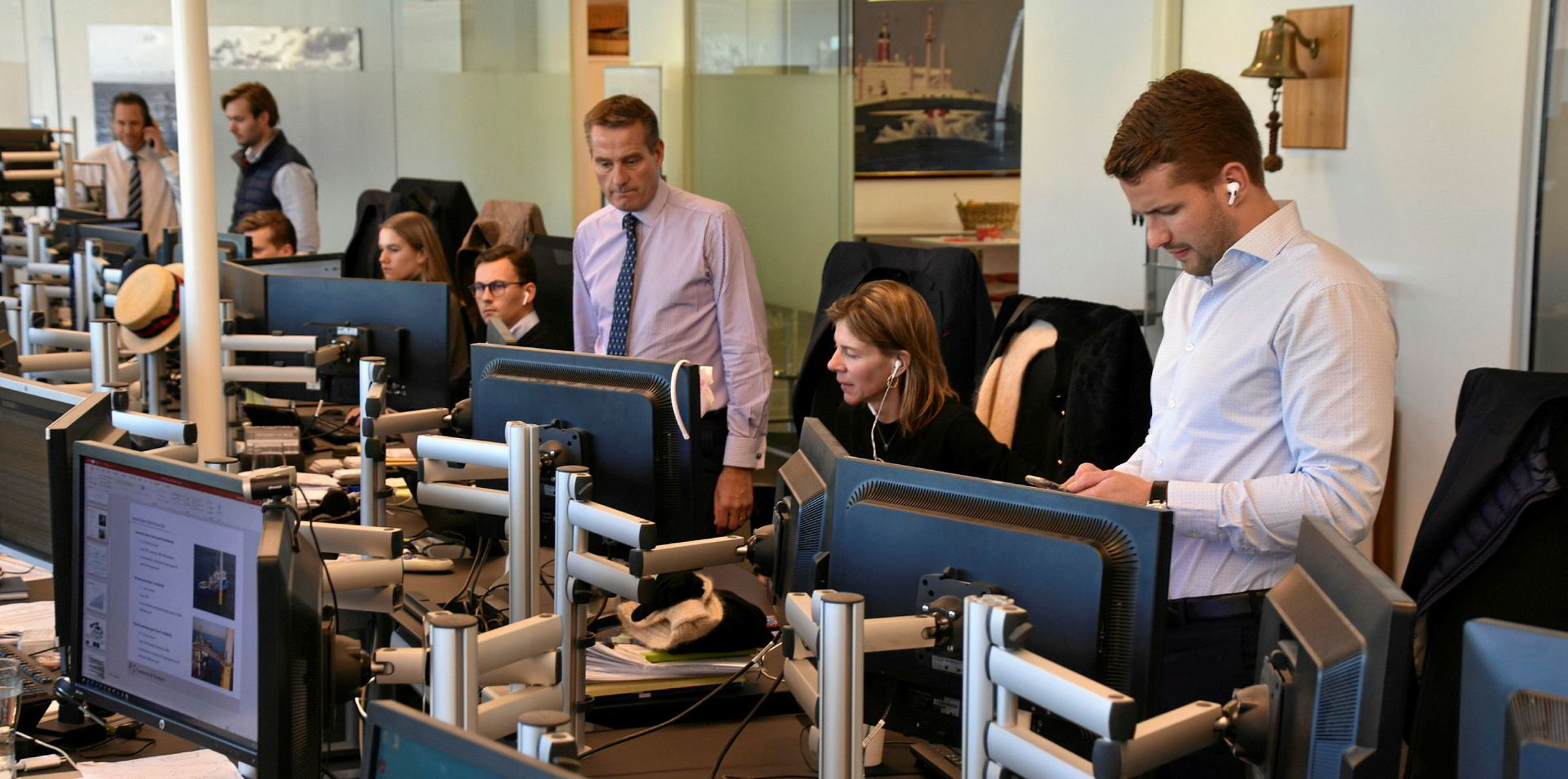Shipowners and lenders will have to face up to the fact that the green transition in shipping could cut the active life of vessels, bankers warned.
The TradeWinds Digital Forum heard on Tuesday that companies face big risks investing in new technologies against a background of rapidly shifting environmental regulations.
Paul Taylor, global head of shipping and offshore at French lender Societe Generale, told the forum: "Slowly but surely shipowners are realising the Poseidon Principles will have a great impact."
He admitted the lending rules linking cash to environment, social and governance (ESG) ratings are not universally popular.
And the banker explained that those companies with a much older fleet have the potential to see their access to capital blocked.
But Taylor added: "I don't think it will be. There are always other sources of finance."
Nevertheless, he pointed to the huge technological risk involved for owners getting to grips with ESG and its associated regulatory frameworks.
Charters shorter, asset life to follow suit?
"We don't know whether the new fuels are going to propel existing ships," he said.
"What is clear is that more owners are taking more technological risks and charters are getting shorter, particularly in LNG."
The older technologies like steam turbines and diesel-electric systems have a much worse operational performance, Taylor added.
"We're all taking much more risk. Maybe asset lives will get shorter over time," he said.
Addressing the question of assets left "stranded" by ESG requirements, Andy Dacy, global head of JP Morgan's transportation group, said coal is going to be an "extremely challenging commodity going forward".
"That's not to say some pockets of the world will not support it," he said.
"If you look at panamaxes and kamsarmaxes, if that coal trade goes down, there will be parts of the world without the same restrictions, so Western companies will sell that asset at a low price, because its future will be curtailed."
And he asked if owners build LNG-powered vessels, what will be the useful life of that asset?
Time for reflection
Dacy said: "Scrubbers were all the rage, but Covid came along and the oil price fell and now it's an extra piece of equipment, it's heavier. People don't want them."
And he added: "I would argue this is good. An unwillingness to pull the newbuilding trigger will lead to a more predictable industry over time."
DNB's global head of ocean industries, Jan Ole Huseby, was asked if some kinds of business will no longer be possible.
"That is literally the million dollar question," he said.
Huseby explained shipowners face a double risk. There is uncertainty involved in developing and using new vessels, and there is a question mark over whether these ships will actually carry some types of cargoes.
"The pace and the time to get to that point is impossible to tell. Future generations are going to speed up the process," he added.
Huseby advised owners: "You need to look at it now and have a cautious mind about making investment decisions at the moment."
Turning to potential upcoming political change, the DNB man said the European Union is already earmarking 30% of its pandemic recovery funds to climate change issues, while US presidential candidate Joe Biden has pledged $2trn to decarbonise the country's economy.
Working together
"The train is going in a greener direction," he added.
Paolo Enoizi, chief operating officer of LNG carrier owner GasLog, said partnerships will be vital in the future.
"The nation of the sea has always been very responsive to compliance bars, however high or low these have been set," he told the forum.
"This equation has to change and the crew change crisis is an example of how not to do that."
Societe Generale's Taylor added that this is an uncertain time for shipping, and he said he had concerns that certain parts of the sector want decarbonisation to happen overnight.
But he stressed that a collaborative approach is the way towards clearer regulation.
"We need to de-risk first movers. It's a pretty big risk for anyone to take."







